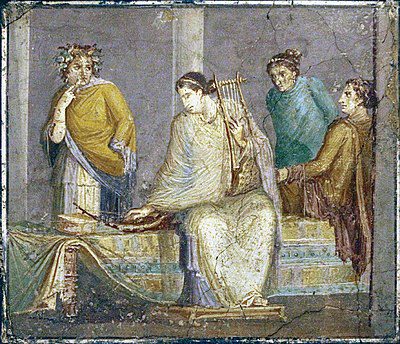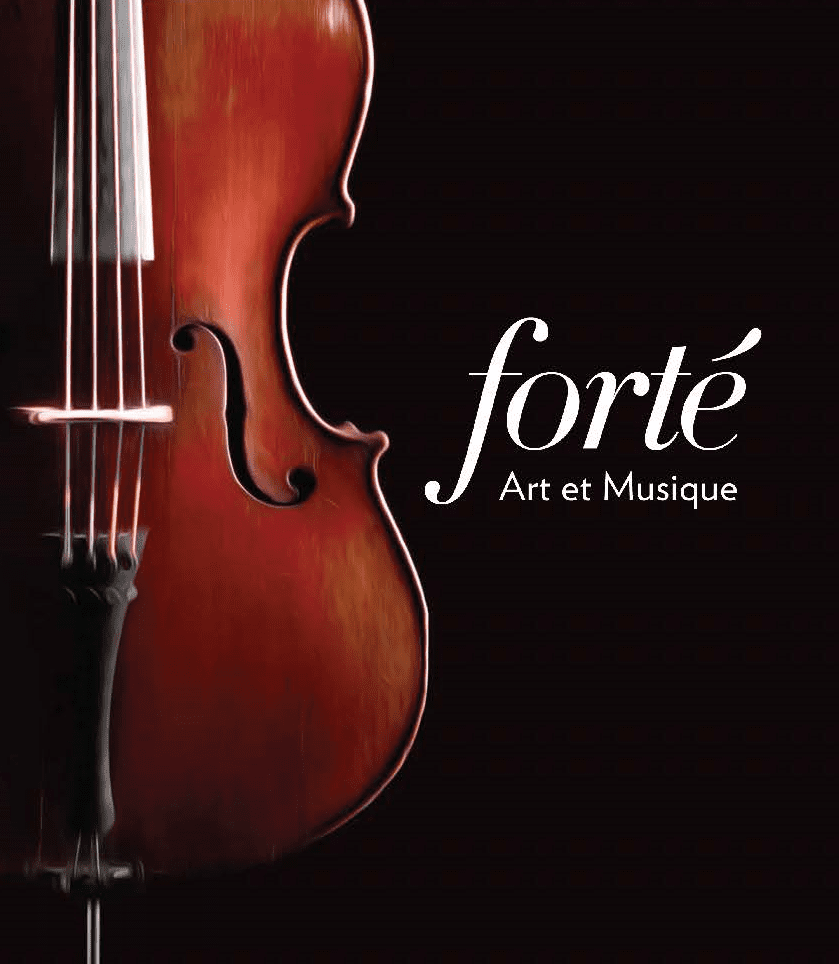
Introduction: The Soul of Greek Culture
In the heart of ancient Greece, music was the very pulse of society, intricately woven into the fabric of daily life and imbued with a significance that went far beyond mere entertainment. This deep integration of music in Greek culture manifested in various dimensions, from the sacred echoes in temples where hymns to gods and goddesses elevated the spiritual fervor, to the hallowed halls of education where music was a key element in shaping the intellect and character in line with the revered Greek ideals of balance and excellence.
The Greek theater, a domain where the tragic and the comic danced hand in hand, relied profoundly on music to breathe life into its narratives, using it to heighten the emotional impact and add depth to the storytelling. This multifaceted presence of music across the societal spectrum served not only as a medium for artistic expression but also as a mirror reflecting the collective ethos of the Greeks. It encapsulated the values, the beliefs, and the philosophical leanings that were the bedrock of ancient Greek civilization. Music, in this context, transcended its role as a cultural artifact to become a vital thread in the tapestry of Greek life, embodying the essence and the spirit of this illustrious ancient society.
Historical Context: Echoes Through Time
Music in ancient Greece evolved significantly from the Archaic through to the Hellenistic periods. Initially intertwined with oral traditions, as seen in the epic recitations of Homer, music became a sophisticated art form in Classical Athens, reflecting the city’s intellectual achievements. By the Hellenistic era, Greek music’s influence spread widely, mingling with the sounds of the Eastern Mediterranean. This historical journey of music mirrors the broader currents of Greek civilization, highlighting how music was both shaped by and a shaper of the society it resonated within.
Renowned musicians and composers were often revered as much for their philosophical insights as for their musical talent, left indelible marks on the fabric of music and culture. Figures such as Terpander, often celebrated for his contributions to musical theory and practice, was known to have won the first musical contest at the Pythian Games, a precursor to his lasting influence on Greek music. Similarly, Timotheus of Miletus, another celebrated musician, was recognized for his innovative compositions and performances, contributing significantly to the evolution of Greek musical forms. These musicians were not just performers but also cultural icons, embodying the Greek ideals of arete (excellence) and harmonia (harmony).
Musical Instruments: The Tools of Harmony
The instruments of ancient Greece were as varied as they were sophisticated, with the kithara, lyre, and aulos playing central roles in both composition and performance. These instruments were deeply symbolic of Greek cultural values and artistic aspirations.
- Kithara: The Kithara, often associated with the god Apollo, was not just a musical instrument; it was a symbol of artistic mastery and divine inspiration in ancient Greek culture. This large, complex stringed instrument, requiring considerable skill to play, was a favorite among professional musicians. Its deep, resonant tones were thought to echo the harmonies of the universe, making it a prestigious choice for formal occasions and public performances, including competitions and ceremonies held in honor of the gods.
- Lyre: The Lyre was more intimately woven into the fabric of everyday Greek life. This smaller, more portable stringed instrument was a staple in educational settings, where young Greeks were taught music as a fundamental component of their upbringing. The lyre’s accessibility made it a popular choice for casual music-making and social gatherings, reflecting the democratic spirit of music in Greek life. Its sweet, melodious sounds accompanied poets and singers, facilitating the oral tradition of storytelling and the recitation of epic poetry, which were central to Greek culture and education.


- Aulos: The Aulos, with its reedy, penetrating sound, stood in stark contrast to the stringed kithara and lyre. This wind instrument, often played in pairs, was pivotal in various aspects of Greek life, adding a vibrant, dynamic layer to the musical soundscape. In sacred ceremonies, the haunting sound of the aulos was believed to connect the earthly with the divine, invoking the presence of gods and goddesses. In the military sphere, the aulos played a crucial role in maintaining the rhythm and morale of soldiers, its piercing tones cutting through the noise of battle. The instrument’s versatility made it indispensable in both the sacred and secular realms, reflecting the diverse musical traditions of ancient Greece.
These instruments underscore the Greeks’ appreciation for the technical and emotional dimensions of music, highlighting a culture deeply attuned to the art’s aesthetic and spiritual potentials.
The Social Fabric: Music in the Public and Private Realms
Music was a ubiquitous element that permeated every layer of society, from the grandeur of public ceremonies to the intimacy of household celebrations. The sacred processions in honor of the gods were incomplete without the solemn melodies of hymns and chants, which elevated the spiritual fervor and unity among participants. These events showcased music’s power to transcend the mundane, connecting mortals with the divine and reinforcing the societal fabric through shared religious experiences. The very streets seemed to hum with a reverence that tied the community to its spiritual foundations, illustrating music’s role in maintaining the cultural and religious continuity of Greek life. Public festivals, religious ceremonies, and theatrical performances were imbued with music, reflecting its centrality to Greek communal life. The Panathenaic and Dionysian festivals, for example, were as musical as they were religious events, featuring competitions that showcased the prowess of musicians and composers.

On the other end of the spectrum, music thrived in the private realm, particularly within the walls of the symposium—a gathering space where philosophers, poets, and politicians convened over wine and discussions. Here, music facilitated a different kind of connection: one of intellectual camaraderie and leisurely enjoyment. The strumming of the lyre and the flow of melodic verses set the stage for debates and poetic recitations, enriching the social tapestry of Greek life. These gatherings were a testament to the role of music as a catalyst for dialogue and reflection, fostering a sense of community among the elite.
Musical Theory and Philosophical Underpinnings
Greek educators incorporated music training into their curricula, recognizing its profound impact on both the character and intellect of young minds. This educational practice was rooted in the belief that music could cultivate discipline, emotional intelligence, and ethical sensibilities. For instance, learning to play an instrument wasn’t just about mastering the notes but about instilling a sense of harmony and balance within the individual, reflecting the broader Greek ideals in all aspects of life.
The Greek musical system, with its modes and theories, laid the groundwork for Western music’s development. Although much of the actual music has been lost to time, the theoretical contributions of Greek thinkers have endured, influencing musical education and philosophy throughout the centuries. By examining the integration of music in Greek educational systems, its societal roles, and the theoretical legacies left behind, we gain a comprehensive understanding of its significance. This exploration not only sheds light on the intricacies of ancient Greek culture but also underscores the timeless value of music as a fundamental human expression and a powerful tool for shaping the moral and intellectual fabric of society.
The influence of music in ancient Greece extended well beyond the classroom. Music accompanied epic recitations of Homer’s “Iliad” and “Odyssey,” bringing the tales of gods and heroes to life for audiences. The use of specific modes and scales in music was thought to evoke certain emotions, a concept that philosophers like Aristotle discussed in works such as “Politics,” where he examines music’s effect on human behavior. For Plato, music was instrumental in shaping the ideal society, as he believed it could both reflect and affect the moral character of its listeners.
The ancient Greeks sought to understand its very essence, venturing into the realms of mathematics and philosophy to unravel its mysteries. Their inquiries laid the foundations of music theory, transforming music from mere entertainment into a field rich with intellectual depth. The legendary figure Pythagoras stands at the forefront of this exploration, with his groundbreaking discovery of the mathematical relationships between musical notes. His work revealed that music was not just an art but a science, governed by precise laws that reflected the order of the universe itself.

This fusion of music, mathematics, and moral philosophy was revolutionary, highlighting the Greeks’ comprehensive understanding of music’s role in human life. It wasn’t enough to appreciate music for its beauty; the Greeks sought to grasp its underlying principles and its impact on the human psyche and society. Their approach to music education, which integrated theoretical study with practical training, reflects this holistic view. Music wasn’t just a subject to be learned; it was a discipline that shaped the mind, soul, and society, embodying the Greeks’ pursuit of harmony in all facets of existence. This rich legacy of Greek musical theory and philosophy continues to resonate, influencing how music is taught, understood, and appreciated across the world.
Integration with Other Arts: The Interplay of Music, Dance, and Drama
The interplay of music, dance, and drama in ancient Greek culture was a testament to their advanced understanding of the arts and their integral role in society. The Greeks were pioneers in blending these elements to create deeply immersive theatrical experiences. The Greek theatre, particularly, was a melting pot of these artistic expressions, where the chorus played a pivotal role, employing music and dance to enhance the narrative, set the mood, and engage the audience on multiple levels.
Music in Greek theatre was a central component of the performance, with instruments like the aulos and percussion being used to accompany the actors’ voices and the chorus’s movements. These performances often took place during significant festivals and were competitive in nature, with playwrights like Aristophanes and Menander achieving fame through festival competitions.
Dance, too, was intricately woven into these performances, with the chorus executing precise and symbolic movements. Ancient Greek dances could be linear, circular, or zigzag, often used in religious rites and public festivals. The most famous dance form in Greek drama was the theatrical dance of the chorus, which evolved from the dithyramb, a form of choral singing and dancing in honor of Dionysus. This choral performance was not just about aesthetics but also played a crucial role in conveying the playwright’s message and adding layers to the narrative.
The chorus in Greek theatre served multiple functions, from offering advice and wisdom, as seen in Sophocles’ “Oedipus Rex,” to setting the emotional tone of the scene, building suspense, and foreshadowing upcoming events. The use of choral odes, structured songs composed of strophe and antistrophe sections, allowed the chorus to evoke a wide range of emotions, from fear and sorrow to joy and anticipation, effectively enhancing the emotional texture of the narrative.
Mythological and Religious Significance: Divine Harmonies
The mythological and religious significance of music in ancient Greek culture is profound, with the art form being celebrated not just as a human endeavor but as a divine gift. Central to this belief is Apollo, revered not only as the god of the sun but also as the deity of music and harmony. His association with the lyre, an instrument he was said to play with enchanting skill, symbolizes the divine nature of music and its capacity to instill order and beauty in the world.
The Muses, often depicted as nine goddesses, further emphasize music’s celestial origins. Each Muse is patron of a specific art or science, with several directly linked to aspects of music and poetry. Their inspiration was sought by artists and musicians, and their blessings were believed to imbue creative works with divine beauty and grace.
Orpheus, a figure of legend rather than worship, embodies the transcendent power of music in Greek mythology. His ability to charm not just humans and animals but even inanimate objects and the forces of nature itself with his lyre speaks to the Greeks’ perception of music as a force that transcends the earthly realm. The story of his descent into the underworld, using the beauty of his music to soften the hearts of Hades and Persephone, illustrates the belief in music’s power to navigate the boundaries between life and death, the mortal and the divine.
These narratives are not mere stories but reflections of a worldview that saw music as intertwined with the cosmic order, a medium through which the divine could communicate with the human, and vice versa. This sacred perspective on music underscores its role in rituals, celebrations, and the daily life of the Greeks, where it served not only as entertainment but as a vital link to the divine.
Archaeological and Iconographic Evidence: Unearthing Melodies
The archaeological and iconographic evidence from ancient Greece provides a fascinating glimpse into the musical traditions of this influential civilization. The physical remains of musical instruments, such as the aulos, lyre, and kithara, found across various archaeological sites, alongside depictions in vase paintings and sculptures, attest to the integral role music played in Greek society. These artifacts not only highlight the preferred instruments of the time but also offer insights into the methods of playing them and the contexts in which they were used.
The discovery of inscriptions and musical notations, like the Seikilos epitaph, further enriches our understanding of ancient Greek music. The Seikilos epitaph, in particular, stands as the most complete surviving piece of Greek music, offering a rare look at the melodic structures and lyrical content of the time. Such findings underscore the complexity and sophistication of Greek musical composition and performance practices.
The representation of musicians in art and the elevated status they enjoyed in society, as indicated by specific symbols and depictions in art, emphasize the cultural reverence for music. Music’s presence in religious practices, education, and even daily leisure activities like symposiums showcases its pervasiveness across different facets of Greek life.

Contemporary Relevance and Legacy: Echoes of Antiquity
The enduring legacy of ancient Greek music is a testament to its profound influence on the fabric of Western music theory and aesthetics. The Greeks’ pioneering concepts of harmony, scale, and mode have seeped into the very bones of modern music, providing a foundational language and framework that artists and theorists continue to rely on. This rich heritage underscores the timeless relevance of Greek musical thought, echoing through the ages and continuing to shape our understanding of music’s structure and beauty.
In recent years, there has been a resurgence of interest in bringing the melodies of ancient Greece back to life, with musicians and scholars endeavoring to reconstruct ancient instruments and performances. This revival, rooted in meticulous research and a deep appreciation for Greece’s musical past, highlights the enduring fascination with the artistry and ingenuity of Greek musicians. It’s a vivid illustration of how ancient traditions can find new life in contemporary settings, bridging millennia through the universal language of music.
The integration of music into educational curricula mirrors the ancient Greek belief in music’s value not just as an art form but as a crucial element of personal and intellectual development. This philosophy, which saw music as essential for nurturing the mind and soul, has echoed down the centuries, influencing the inclusion of music in the liberal arts and reinforcing its role in fostering well-rounded, enlightened individuals. The Greek ethos, which championed the harmonious development of body, mind, and spirit, continues to resonate in modern educational principles, underscoring the timeless relevance of their insights into music’s role in human culture.
Gallery























Leave a Reply